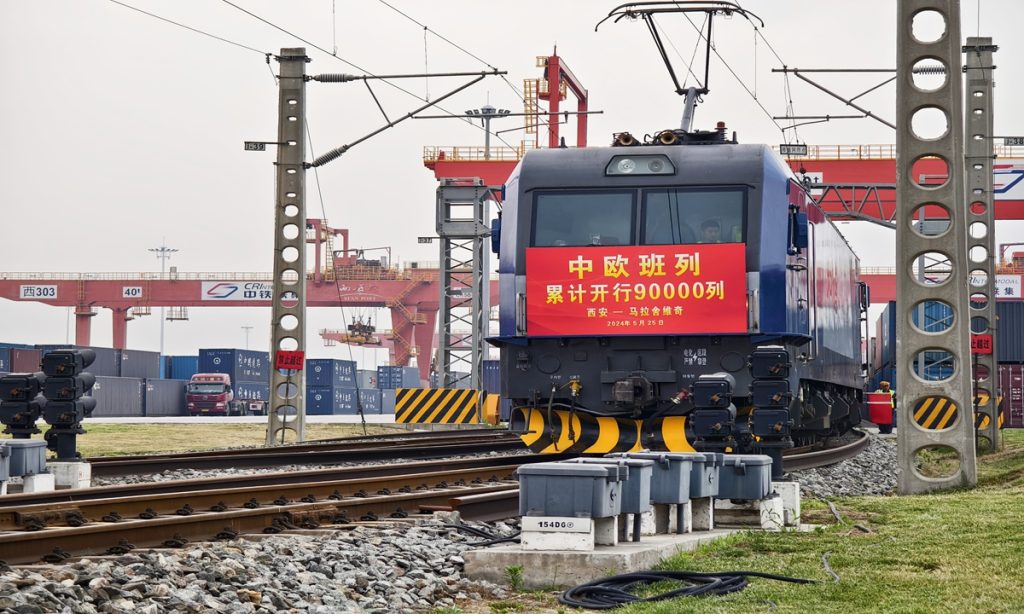Rail cargo transport sets new records in June, empowers H1 foreign trade

China's railway operator said that the nation's railway freight volume and turnover reached new highs in June, cementing the foundation for an economic recovery and foreign trade rebound.
The remarkable progress showed the steady advancement of China's railway transport sector, Sun Zhang, a railway expert at Shanghai Tongji University, told the Global Times on Sunday, adding that it also highlighted the irreplaceable and prominent role of railway transport.
In June, China's railway system transported 332 million tons of cargo, up 6.1 percent year-on-year, and achieved freight turnover of 266.5 billion ton-kilometers, up 5.3 percent year-on-year, said China Railway via its official social media account on Sunday.
China's railway freight volume -- No.1 in the world -- surpassed the total volume of the US and Russia, which ranked second and third.
Transport Minister Li Xiaopeng told a press conference on July 10 that the total length of China's operating railways reached 159,000 kilometers as of the end of 2023, with high-speed railways surpassing 45,000 kilometers.
Li noted that a basic railway framework with "six arteries, seven corridors and eight channels" has been formed, which covers links among China's major economy clusters, the New International Land-Sea Trade Corridor and other outbound railway routes, and specific regional railway connections.
China set a new record for foreign trade in goods in the first half of 2024, with a year-on-year increase of 6.1 percent to 21.17 trillion yuan ($2.9 trillion), data released by the General Administration of Customs showed on Friday.
In terms of international railway transport, China Railway said that 1,719 China-Europe freight trains were operated in June, up 15 percent year-on-year, and they carried 180,000 standard containers, up 11 percent year-on-year.
In the first half of 2024, the China-Laos Railway, the flagship project under the Belt and Road Initiative, facilitated 2.783 million tons of cross-border cargo, up by 20.7 percent year-on-year.
ASEAN remained China's largest trade partner during the first half year, with bilateral trade reaching 3.36 trillion yuan, up by 10.5 percent year-on-year.
"The so-called 'decoupling' from China launched by some Western countries affected China's foreign trade volume, but new export paths formed by international railways to Southeast Asia and Central Asia can make up the loss," said Sun.